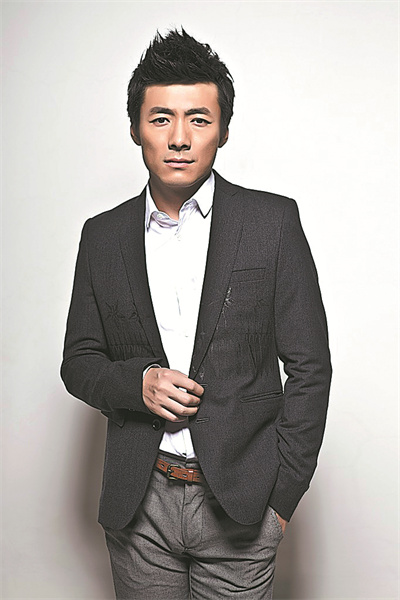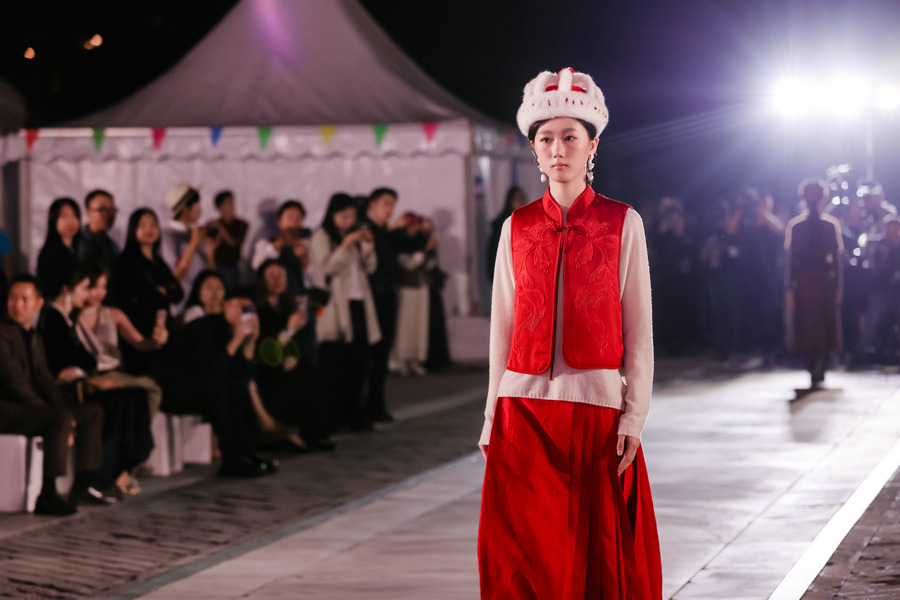The challenges of portraying modern China to an international audience


As China has developed at an extraordinary pace over the past three decades, presenting an authentic, modern China on screen to resonate with global audiences is a new task for local filmmakers, says actor Zu Feng.
Zu, an actor renowned in China for his gentle, refined persona and for portraying complex, layered characters, discussed the recent premiere of his latest film on the Chinese mainland, Brief History of a Family, which is the first movie by a debut Chinese director to compete at both the Sundance and Berlin international film festivals.
In the movie directed by Lin Jianjie, Zu, now in his early 50s, plays a Chinese father who grew up in a home short on warmth but who now pins high expectations on his child. He notes that the story focuses on communication across generations, a theme common in Chinese families.
"When we were young, we often got mad at our parents for not understanding us. We promised ourselves that if we ever became parents, we would surely understand our own kids," he says.
Yet, three decades on, Zu admits that the same conflicts persist, repeating themselves over time as age and experience inevitably shape the ways children and parents see life.
The frustration and desire for communication are not unique to Chinese families. Zu recalls that on the way to a post-screening event in Germany during last year's Berlin International Film Festival, a group of teenagers surrounded the director, asking him for autographs and telling him how much they loved the film. "They could easily understand the challenges faced by many families worldwide," Zu says.
Characterized as a man who once studied abroad, the father in the film enjoys Chinese calligraphy, tennis and Bach's The Well-Tempered Clavier. The character reflects the director's ambition to tell a story rooted in Chinese society while also capturing a modern lifestyle that resonates with audiences around the world. "There is a universal conflict we want to show the audience," the actor adds.
From its early development to its final release, Brief History of a Family generated interest at international festivals. Zu says that this has become increasingly common for Chinese films in recent years.
He cites Red Sorghum, released in 1988 shortly after the beginning of China's reform and opening-up, which later won the Golden Bear at the 38th Berlin International Film Festival. "Since then, Chinese films have been reaching out to the world. Directors like Zhang Yimou have won numerous honors and continue to be highly productive," Zu says.
But as the industry develops, he warns, opportunities for young filmmakers are shrinking. "How can new directors truly grow under such circumstances?" he asks.
For that reason, Zu believes that gaining entry to domestic and international film festivals remains one of the most effective ways for young Chinese directors to attract investment for their projects. "It is on those stages that many people can truly see their talent," he says.
So far, Brief History of a Family has been sold to more than 70 countries and regions, according to Films Boutique, a German-French company responsible for its international sales.
However, Zu believes an even greater challenge for Chinese directors aiming for a global audience is keeping pace with how rapidly the country itself has changed.
"Our country has transformed so quickly that it is hard for overseas audiences to grasp the scale of change," says Zu. The award-winning films of earlier generations reflected the China they experienced or remembered. But today, many things are completely different.
To bridge gaps in perception and culture and truly move audiences, Zu believes that the answer still lies in storytelling. "What captivates audiences most is a story that feels new, whether it is entirely original or a familiar one told from a different angle," he says. For overseas audiences in particular, he suggests that China's culture, as well as mindset and the unique attitudes and expressions of today's Chinese people, could all feel refreshing.
For Chinese audiences, Zu is perhaps best known as a familiar face in popular espionage dramas, a genre focused on the perilous world of undercover agents, intelligence networks and political intrigue, often set against the backdrop of the last century's wars.
At its core, it's about decision-making, something that troubles everyone in life, says Zu. For people in wartime, choices were not just about missed opportunities, but about life and death.
"As audiences step into the protagonist's emotions, they also reflect on themselves. Could I be as strong as he is? Or, if he shows weakness, would I be able to forgive him?" Zu adds.
This year marks the 80th anniversary of the victory in the Chinese People's War of Resistance Against Japanese Aggression (1931-45) and the World Anti-Fascist War. Speaking on why stories set in that era continue to resonate with Chinese audiences, he says it is because people remain curious about what life was truly like back then.
"It is impossible to fully re-create history, but through film or TV series, I hope we can capture the human spirit in times of war," he says.
"What we hope to convey is that, even in extreme circumstances, they are flesh-and-blood human beings with emotions and fragility," Zu adds.
He also expresses hope that such films and TV dramas can remind people today of the importance of peace and development. When people say that history repeats itself, Zu believes it is not history that recurs, but the constancy of human nature. "And that is why people keep looking back, striving to prevent similar tragedies.
"We don't want to return to a time when anyone could bully us," he adds. "We must remember our past vulnerabilities and the reasons behind them, and remind ourselves not to repeat them. While we do not bully others, we will not allow others to bully us."




































